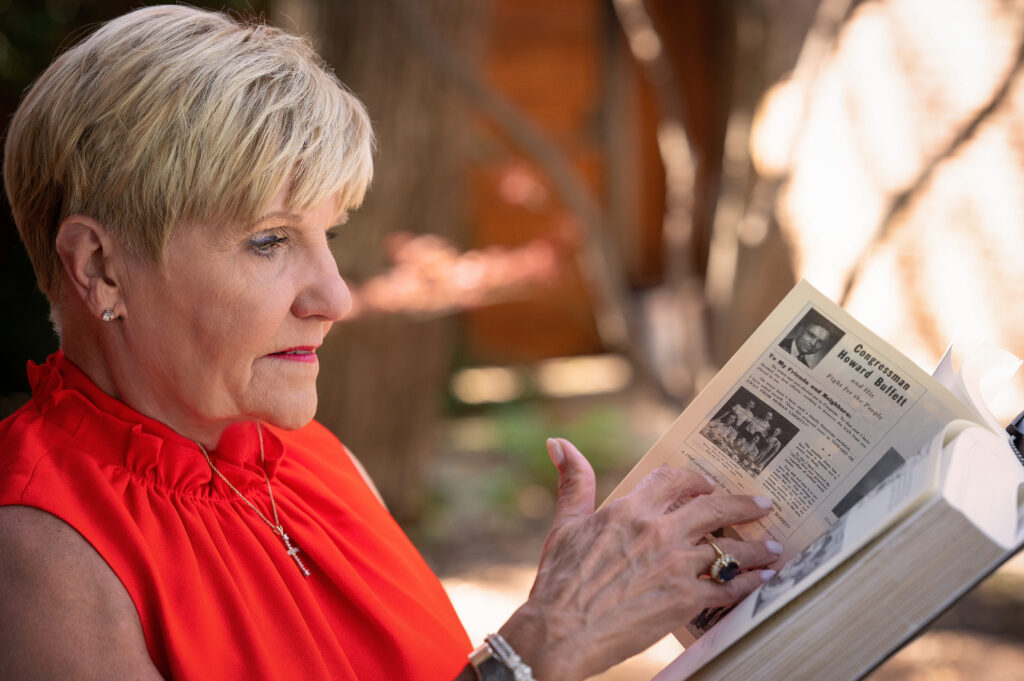Just over a month after Betsy Price was defeated in a bitterly contentious Republican primary race for Tarrant County Judge, she is finally enjoying the life she imagined when she retired last year as Forth Worth’s longest-serving mayor.
She’s able to spend time with her husband, Tom, and her adult children and grandkids. There is also time to indulge her passion of bike riding, and she has plans to become more involved with philanthropy and business enterprises.
A year ago, Price was ready to leave behind a 20-year career in public service, which included 10 years as Tarrant County’s tax assessor-collector and another decade as mayor of Fort Worth.
Now, the former mayor is steadfast in her insistence that she has hung up her spurs as far as ever running for elective office again.
“For me, it’s never been about politics,” she said. “It’s always been about community service.”
Price ran for elective office for the first time in 2000 at the urging of a business client, who convinced her that she had the skills to improve the efficiency of the tax assessor-collector’s office.
It took more coaxing to convince her run for mayor in 2011 but friends and supporters prevailed, pointing to her achievements as tax assessor-collector and her proven leadership ability.
That first campaign for mayor led to four more: she won five consecutive two-years terms as Fort Worth’s top elected official. When that fifth term ended in May 2021, Price was certain she would depart the political battlefield once and for all to spend more time enjoying her family and a variety of pursuits that had taken a backseat to the demands of government and public service.
Then, last summer, two days after longtime County Judge Glen Whitley announced he would not seek another term, Price stepped up to fill the gap.
Price, 72, has no regrets about running to succeed Whitley nor is she is bitter about her primary loss to Tim O’Hare, former chairman of the Tarrant County Republican Party and her chief rival in the five-candidate race.
But she is extremely worried about the future, as are her many supporters.
She has been inundated since the primary with correspondence about the race. Along with well wishes, many have expressed fear about the county’s future if O’Hare is elected in November. He faces Democrat Deborah Peoples, chair of the Tarrant County Party and a two-time candidate for Fort Worth mayor who was defeated by Price in 2019 and by current Mayor Mattie Parker in 2021.
“It’s a shame and a mystery to a lot of people,” Price said. “We voted in a person with virtually no leadership experience who ran a disinformation campaign based on fear-mongering that brought out the most extreme partisans.”
Most disappointing to her was the drastic right turn of Republican voters and low turnout in the party’s primary. Only 10.89 percent of Tarrant County’s Republican voters cast ballots. Total primary turnout in the county was 16.1 percent.
“This is not meant as sour grapes but this should be a wake-up call,” Price said. “This isn’t the party it used to be 30 or 40 years ago when there were more moderate Republicans than there are now. I’m not sure there is a place for me in this party anymore,” she said.
Price’s supporters were particularly rattled by O’Hare’s lopsided victory: 57 percent to 34 percent.
“I could not run in a Republican primary because I just couldn’t look myself in the mirror and do it,” Mattie Parker recently told theTexas Tribune.
Retiring County Judge Whitley endorsed Price as his successor and was one of many prominent figures who supported her.
“I’m very disappointed in the election results and concerned about the future of our county,” Whitley said.
The Republican Party’s long-standing stranglehold on countywide offices in Tarrant County would appear to give O’Hare a decided advantage in the November general election – although recent evidence suggests that the county may not be as solidly Republican as it once was.
Democrat Beto O’Rourke narrowly outpolled Ted Cruz in the county in their 2018 race for the U.S. Senate and county voters chose Democrat Joe Biden over Republican Donald Trump in the 2020 presidential election.
That said, James Riddlesperger, political science professor at Texas Christian University, believes that Tarrant County remains solidly Republican “at the county level, especially in the judicial races.”
Tarrant is the last metro county in Texas that remains under Republican control and O’Hare has said that keeping it that way is one of his top priorities.
O’Hare’s other priorities include cutting taxes and instituting a property tax exemption. He also plans to fight the “woke mob” and “cancel culture” by standing up for “American values, family values” and “faith values.”
In an interview with CBS 11, he outlined plans to cut taxes by reducing county staff, except for law enforcement, and eliminating some services. He even suggested closing John Peter Smith Hospital and outsourcing indigent health care to other hospitals in the county.
Before moving to Tarrant County, O’Hare was a former mayor of Farmers Branch and served on the Farmers Branch City Council. He successfully pushed through an ordinance that banned landlords from renting to undocumented immigrants, made English the official language of Farmers Branch and blocked funding for programs serving children of undocumented immigrants in Farmers Branch, a community with a large Latino population, according to The Dallas Morning News.
The ordinance made national headlines and resulted in numerous lawsuits. Ultimately, it was declared unconstitutional by a federal court.
The legal battle cost the city about $6.6 million in legal fees, according to the newspaper.
After settling in Southlake, O’Hare participated in the creation of the Southlake Families PAC to fight a diversity plan developed by the Carroll school district as a result of complaints about racist targeting against students of color. This, too, received national media attention.
“A lot of people I’ve talked to are afraid of what he will do,” Price said.
Price’s time in office was characterized by leadership skills that transcended politics, particularly her ability to bring people together for the common good.
In a leadership role, she said, “You have to bring people together to collaborate. You can’t get things done without compromising.”
“(O’Hare) has said he has no interest in reaching across the aisle,” she said.
The county primary defeat was her first loss in 20 years of running for office.
Before her first campaign for tax assessor-collector, she ran a successful vehicle title service business out of her father’s used car dealership in Fort Worth. As a result, she was well aware of the frustrations residents experienced with title transfers and vehicle registrations at the county tax offices.
“I knew what the problems were and how to fix them,” she said. “One of my clients urged me to run for tax assessor-collector and I did.”
Before she was elected, the average wait time at the county’s tax offices was about 50 minutes.
“I was able to reduce the average wait time to about 10 minutes,” she said.
Price’s success as tax-assessor collector earned her many fans who encouraged her to run for mayor of Fort Worth after former Mayor Mike Moncrief retired. She initially rejected the idea and continued to balk until supporters convinced her that she had the experience to fix the city’s broken pension system, which was weighing down the city’s finances and costing taxpayers dearly.
Price’s accomplishment’s during her tenure as mayor include more than balancing the city’s budget and cutting taxes. She presided over a period of tremendous population growth, resulting in Fort Worth becoming the nation’s 12th largest city.
Her commitment to community service made her a dynamic leader, successfully shepherding programs and initiatives aimed at improving the lives of residents such as reducing crime, adding dedicated bicycle lanes and a bike sharing program and introducing the Blue Zones Project to support healthier living in Fort Worth.
Her tenure was also marked by a period of new development and revitalization as well as the introduction of a long-awaited commuter rail line from Fort Worth to Dallas/Fort Worth International Airport.
Although she’s disappointed that her long career in public service was so rudely terminated by a completely unexpected primary defeat, Price is proud of all that she has accomplished.
And she has some advice for to those who are concerned about the future:
“Keep an eye on what’s going on and always vote in the primaries.”









